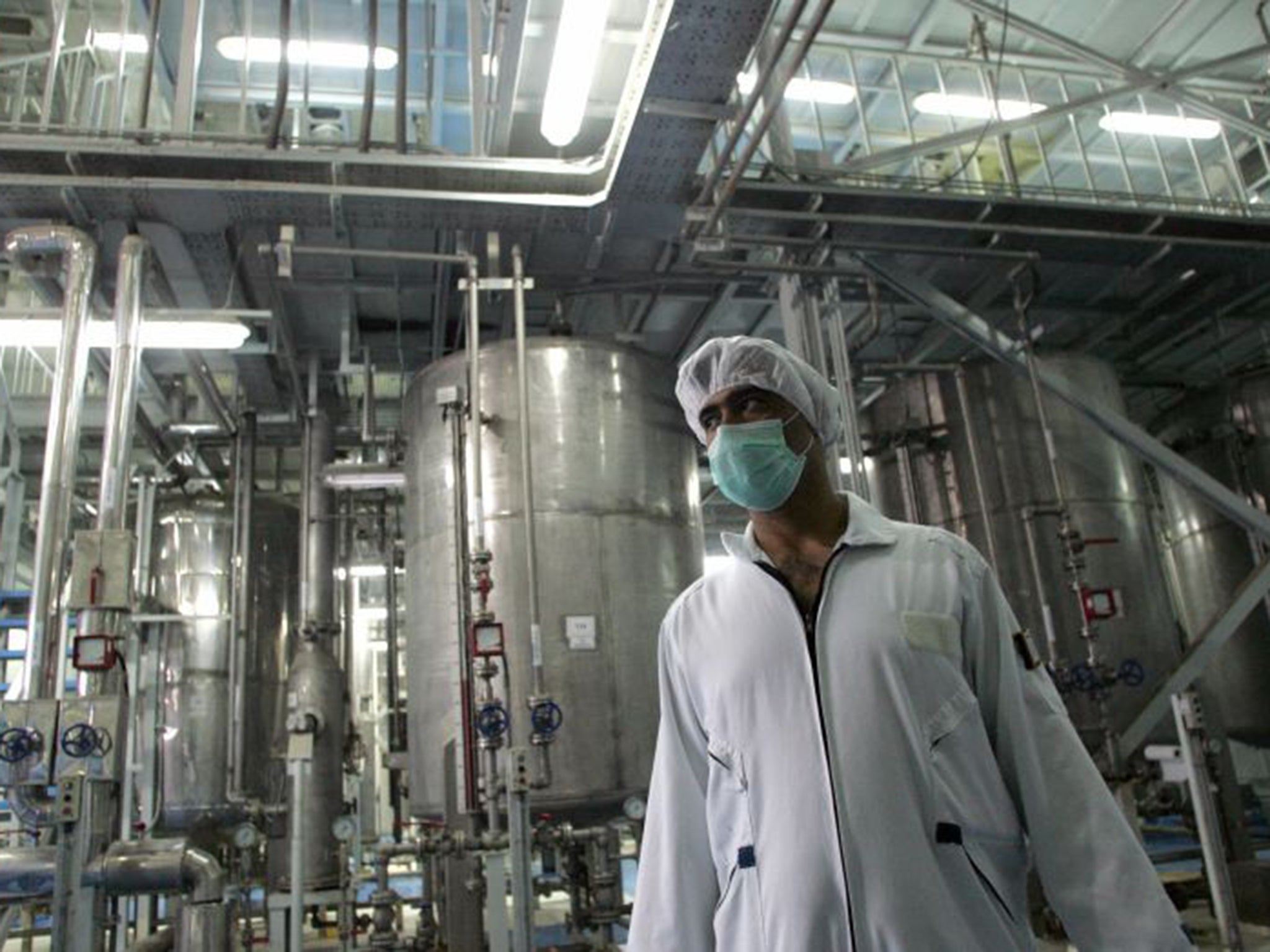Saudi Arabia to begin uranium extraction as kingdom seeks self-sufficient nuclear programme
Gulf state will join UAE as second in region producing atomic fuel

Your support helps us to tell the story
From reproductive rights to climate change to Big Tech, The Independent is on the ground when the story is developing. Whether it's investigating the financials of Elon Musk's pro-Trump PAC or producing our latest documentary, 'The A Word', which shines a light on the American women fighting for reproductive rights, we know how important it is to parse out the facts from the messaging.
At such a critical moment in US history, we need reporters on the ground. Your donation allows us to keep sending journalists to speak to both sides of the story.
The Independent is trusted by Americans across the entire political spectrum. And unlike many other quality news outlets, we choose not to lock Americans out of our reporting and analysis with paywalls. We believe quality journalism should be available to everyone, paid for by those who can afford it.
Your support makes all the difference.Saudi Arabia plans to extract uranium domestically as part of its nuclear power programme and sees this as a step towards “self-sufficiency” in producing atomic fuel, a senior official said on Monday.
Extracting its own uranium also makes sense from an economic point of view, said Hashim bin Abdullah Yamani, head of the Saudi government agency tasked with the nuclear plans, the King Abdullah City for Atomic and Renewable Energy (KACARE).
In a speech at an international nuclear power conference in Abu Dhabi, he did not specify whether Saudi Arabia seeks to also enrich and reprocess uranium – steps in the fuel cycle which are especially sensitive as they can open up the possibility of military uses of the material.
The world’s top oil exporter says it wants to tap atomic power for peaceful purposes only in order to diversify its energy supply and will award a construction contract for its first two nuclear reactors by the end of 2018.
“Regarding the production of uranium in the kingdom, this is a programme which is our first step towards self-sufficiency in producing nuclear fuel,” Yamani told a conference organised by the International Atomic Energy Agency (IAEA).
“We utilise the uranium ore that has been proven to be economically efficient.”
Atomic reactors need uranium enriched to around 5 percent purity but the same technology in this process can also be used to enrich the heavy metal to higher, weapons-grade levels.
This issue has been at the heart of Western and regional concerns about the nuclear work of Iran, Saudi Arabia’s foe, and led to the 2015 deal in which Iran agreed to freeze the programme for 15 years for sanctions relief.
On Monday, IAEA chief Yukiya Amano said Iran was complying with the nuclear deal signed with world powers and which US President Donald Trump has called into question.
Under the agreement, Iran can enrich uranium to 3.67 percent purity, around the normal level needed for commercial power-generation.
Saudi Arabia would be the second country in the Gulf Arab region to tap nuclear after the United Arab Emirates, which is set to start up its first, South Korean-built reactor in 2018. The UAE has committed not to enrich uranium itself and not to reprocess spent fuel.
Industry sources have told Reuters Saudi Arabia is reaching out to potential vendors from South Korea, China, France, Russia, Japan and the United States for its first two reactors.
The plans have received extra momentum as part of Saudi Arabia’s Vision 2030, an ambitious economic reform programme launched last year by Crown Prince Mohammed bin Salman. Yamani said Saudi Arabia will soon pass laws for its nuclear programme and will have set up all of the regulations for its nuclear regulator by the third quarter of 2018.
“The IAEA also has been requested to conduct an integrated review of our nuclear infrastructure during the second quarter of 2018,” he said, which will allow the agency to assess efforts to prepare Saudi infrastructure “to introduce nuclear power for peaceful purposes.”
Saudi Arabia is considering building some 17.6 gigawatts of nuclear capacity by 2032, the equivalent of about 17 reactors, making it one of the strongest prospects for an industry struggling after the 2011 nuclear disaster in Japan.
Preliminary studies have estimated Saudi Arabia has around 60,000 tonnes of uranium ore, Maher al Odan, the chief atomic energy officer of KACARE said at an electricity forum in Riyadh on 11 October.
Reuters
Join our commenting forum
Join thought-provoking conversations, follow other Independent readers and see their replies
Comments